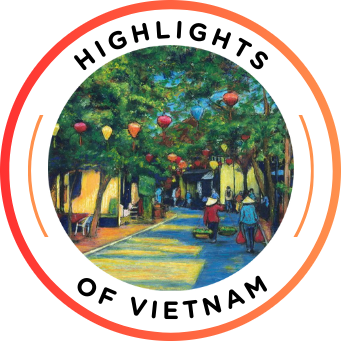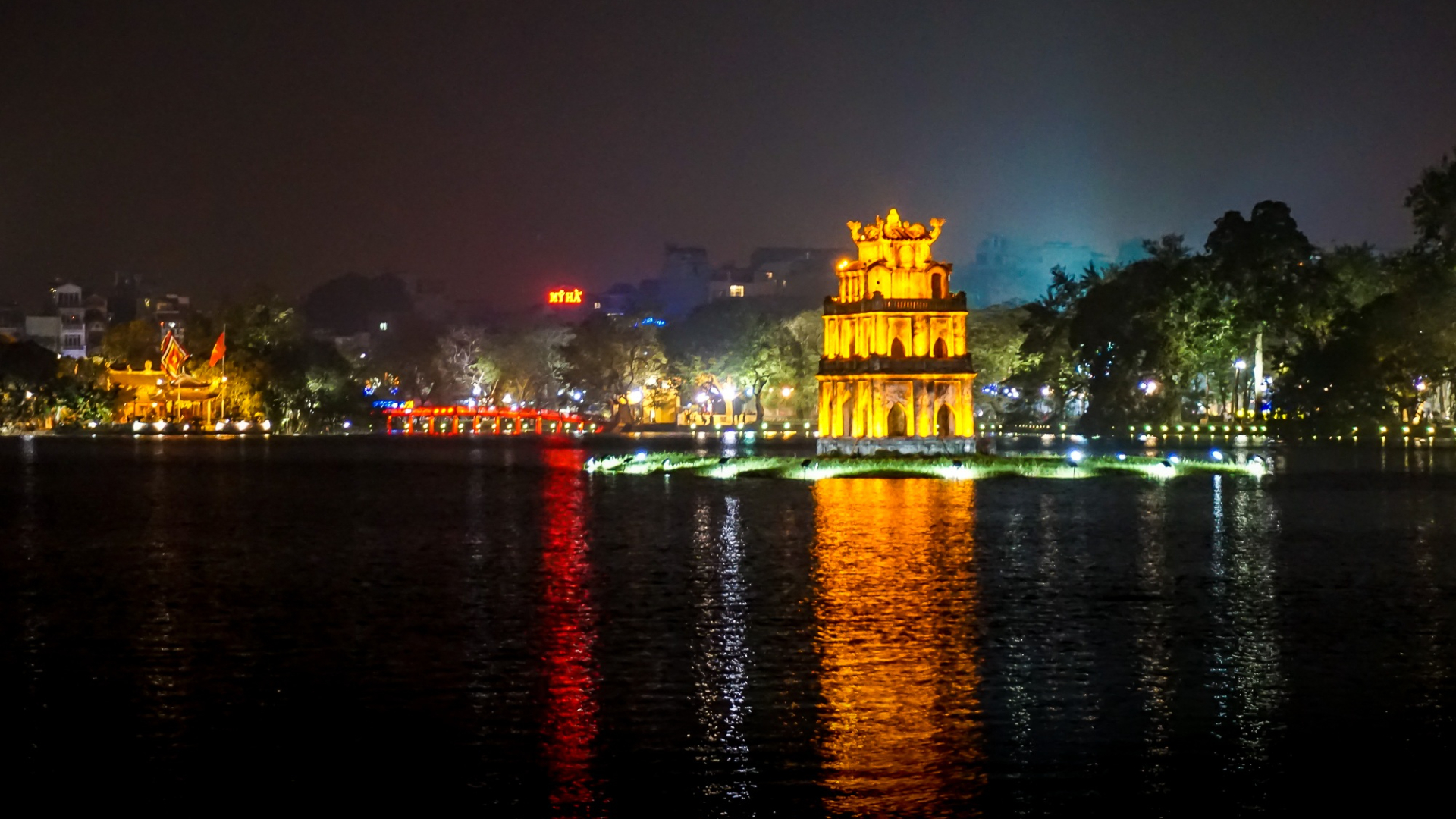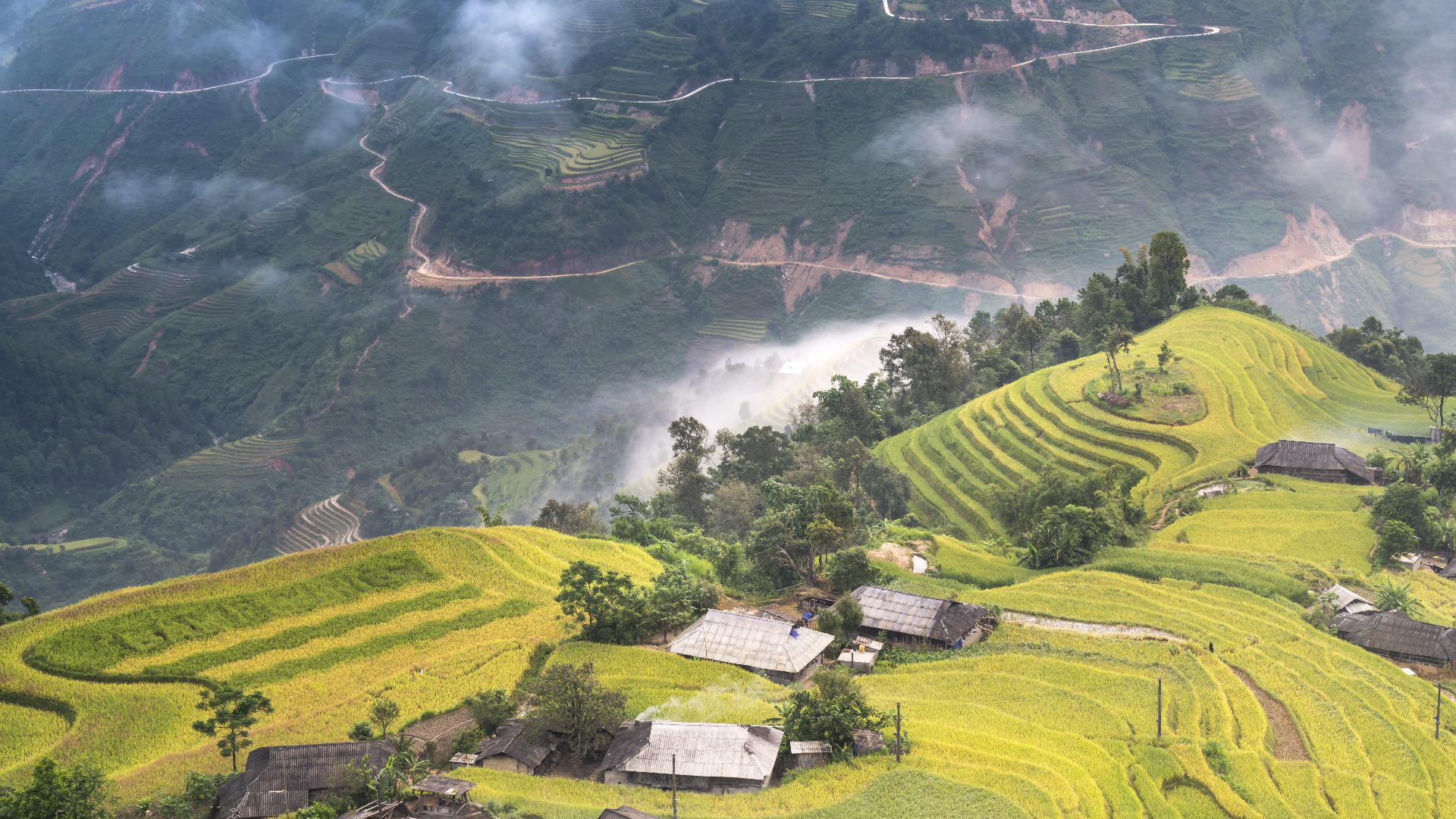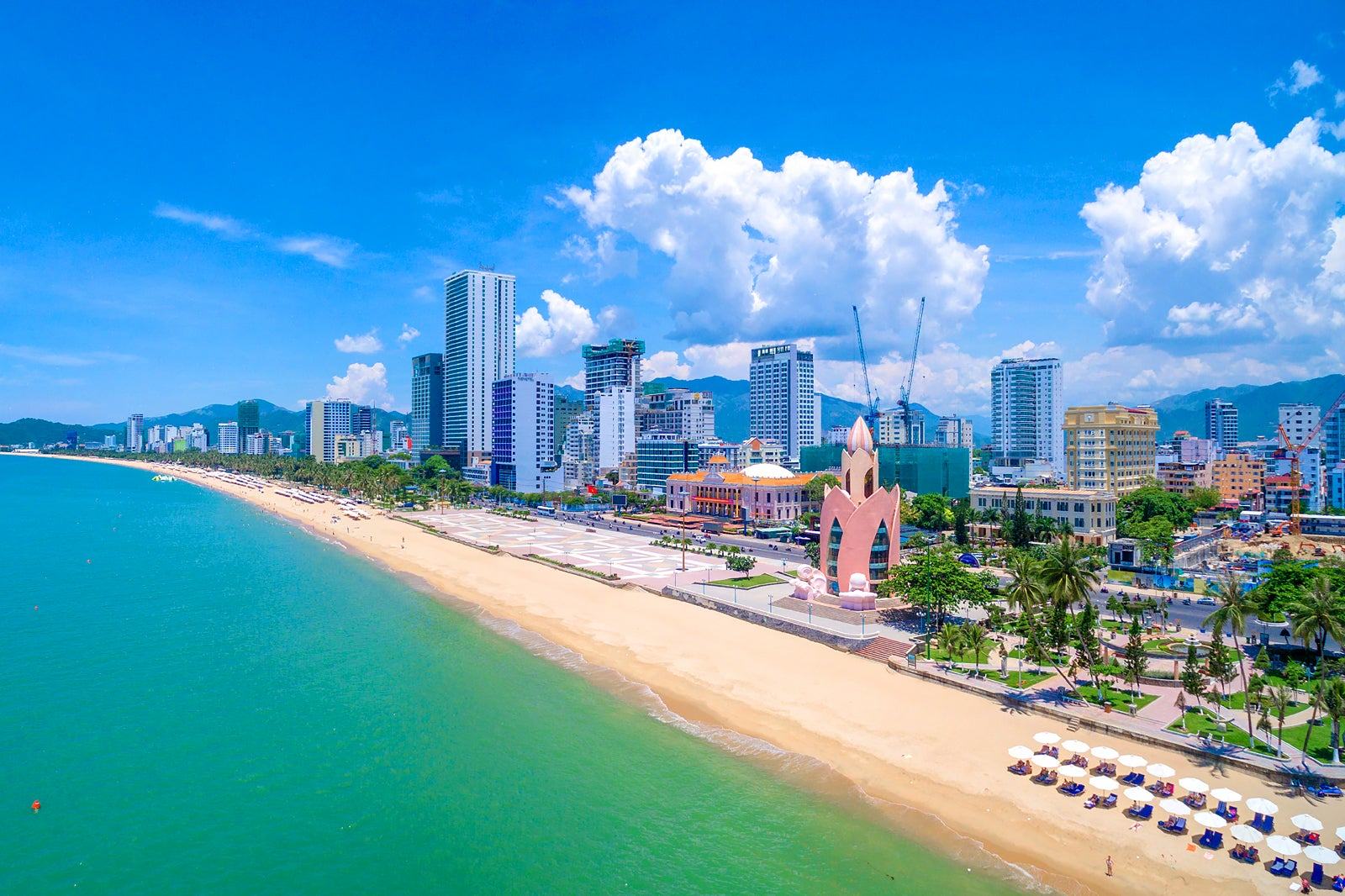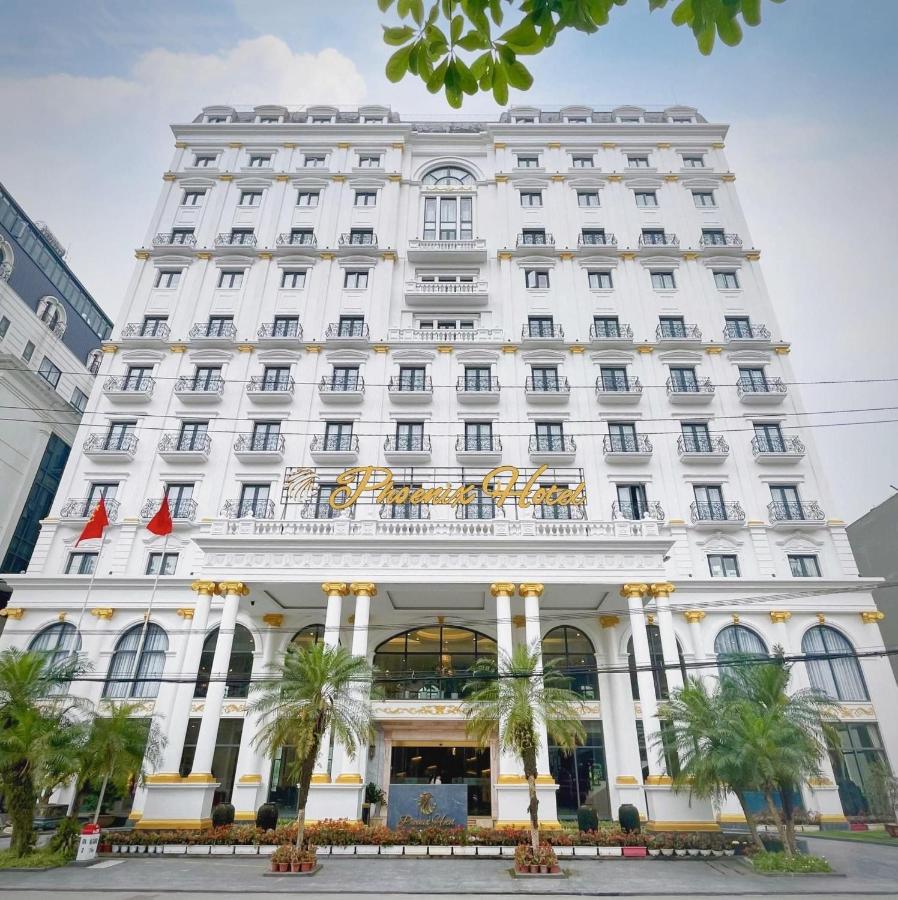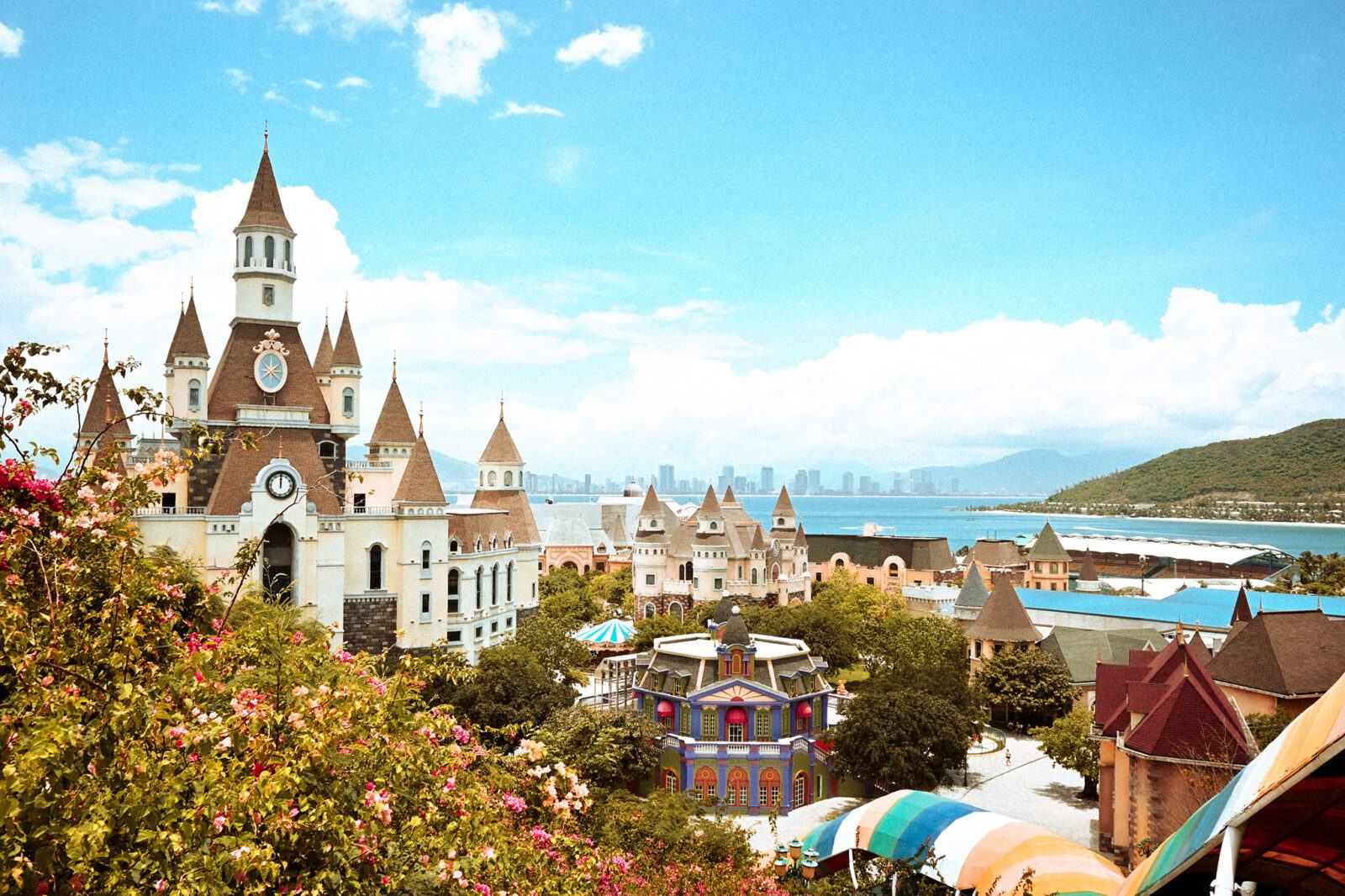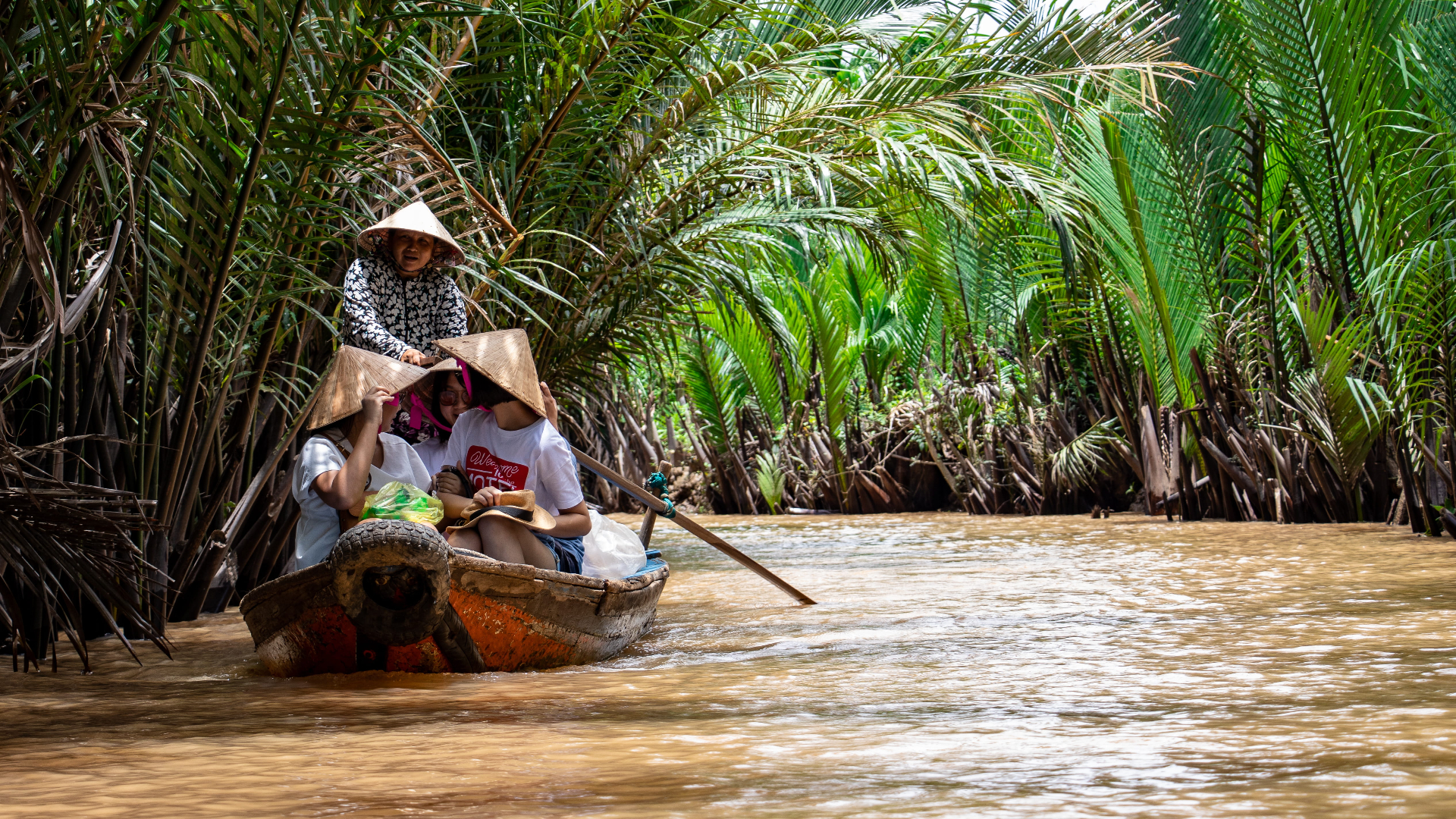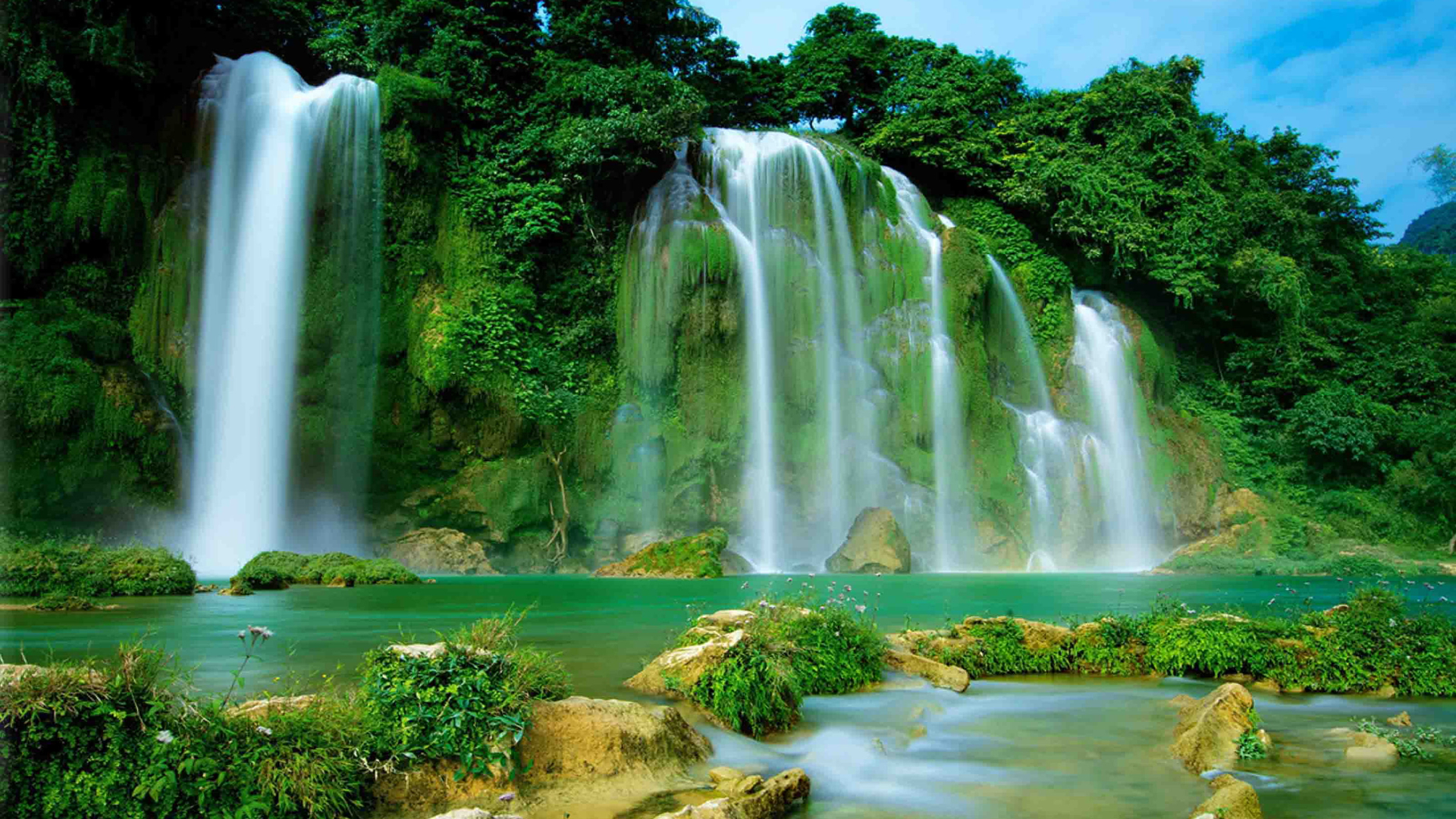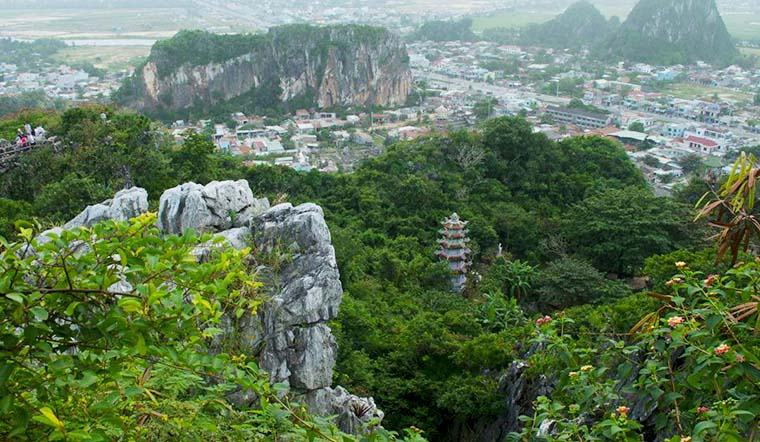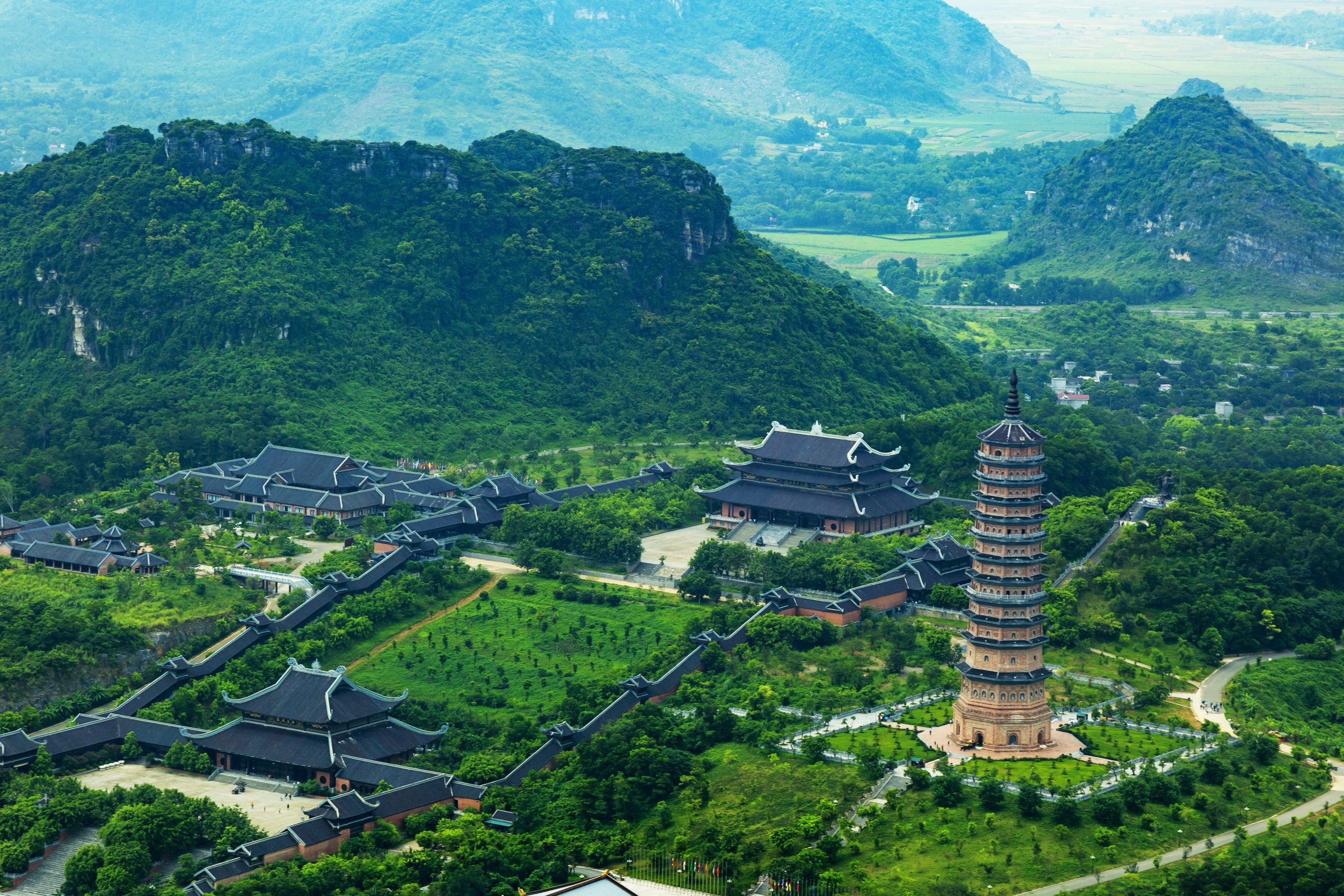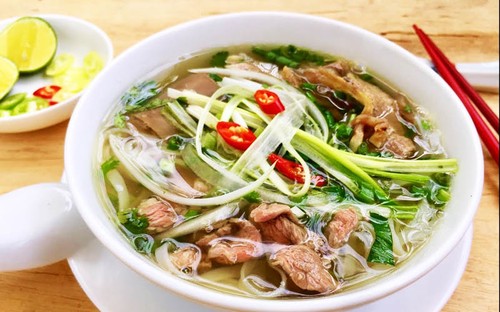Table of Contents
ToggleIntroduction
Ha Giang province is one of the most adventurous destinations in the country. Filled with beautiful karst mountains, steep mountain passes, winding roads, and foggy villages. The province is home to a wide variety of local ethnic minorities who still preserve their traditional culture and lifestyle. The remote areas offer an experience like no other, the cultural diversity and unique, beautiful landscapes remain pure and authentic. The best thing to do in Ha Giang is to jump in a car or on the back of a motorbike and go discover this amazing landscape and the unique cultures.
5 reasons to visit Ha Giang
- Explore the Dong Van Geopark with Vietnam’s most beautiful mountain passes.
- Travel through the most authentic ethnic minority villages.
- Enjoy the view of the Lung Cu flag tower, the northernmost point of Ha Giang.
- Visit local markets.
- Behold the rice terraces of Hoang Su Phi.
Practical information
Recommended days to stay
If you would like to do the Ha Giang loop, you need a minimum of 3 days and 2 nights. Though we recommend 4 or 5 days.
ATMs & money exchange
In Ha Giang City, Dong Van, and Meo Vac you will find ATMs. Small villages don’t have it and do not accept credit cards.
The best time to visit
The scenery of Ha Giang is stunning all year round. The warm and rainy season runs from April to October. If possible, try to avoid visiting in July and August, as these are the months with the most rain and the chance of landslides. The dry season starts in November and ends in March. In December and January, it can get quite cold in the mountains.
10 best things to do in Ha Giang
There are a lot of great things to do in Ha Giang, as this is one of the most impressive and authentic regions of Vietnam. We combined some of the highlights in a list of the 10 best things to do in Ha Giang.
1. Ha Giang motorbike loop
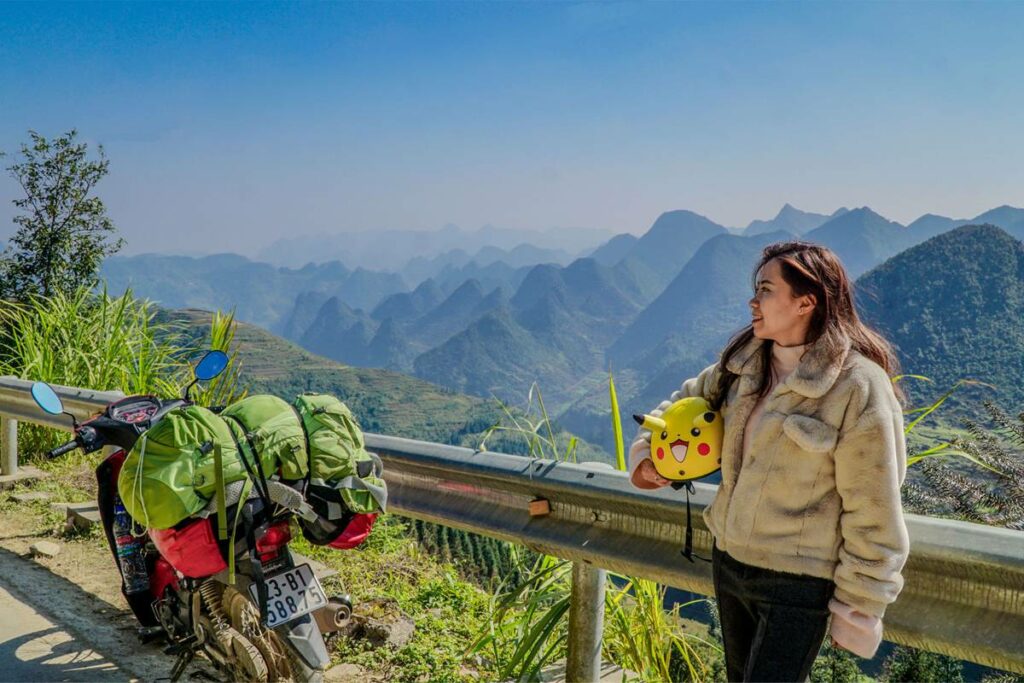 |
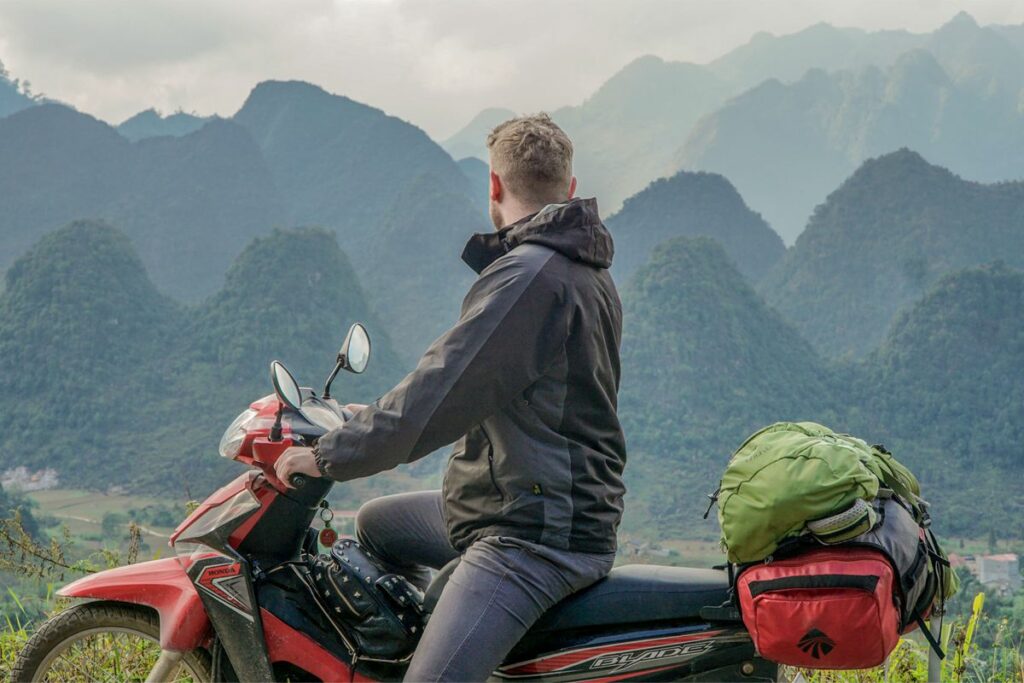 |
Everything in this list of best things to do in Ha Giang can be combined into this one highlight: the Ha Giang Loop. The Ha Giang loop is a 3 to 5-day route that starts and ends in Ha Giang City. Each day you visit a new place and the scene along the road between your destinations is getting better and better.
You will driver over high passes, enjoy landscapes with the most impressive mountains of Southeast Asia and discover the unique cultures of the local minorities. The best way to do the loop is on the back of a motorbike with an experienced guide. If you prefer a bit more comfort and protection against the weather, you can also do the Ha Giang loop by car.
- Tip: Interested in doing this loop on the back of a motorbike or by car? Check out our unique Ha Giang loop tour.
2. Stunning roads & mountain passes
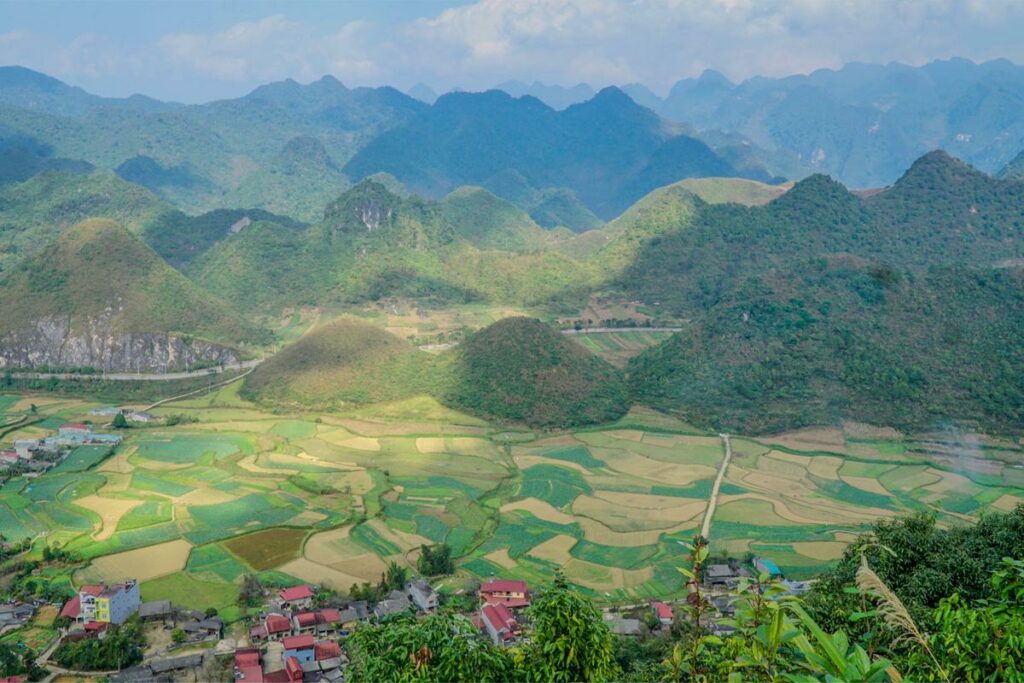 |
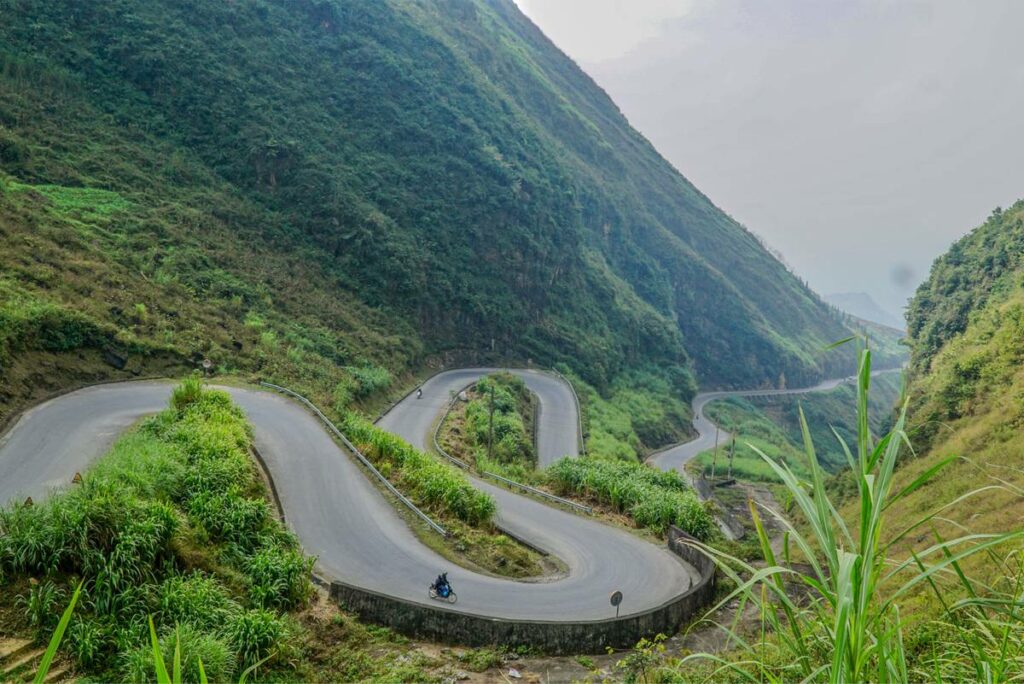 |
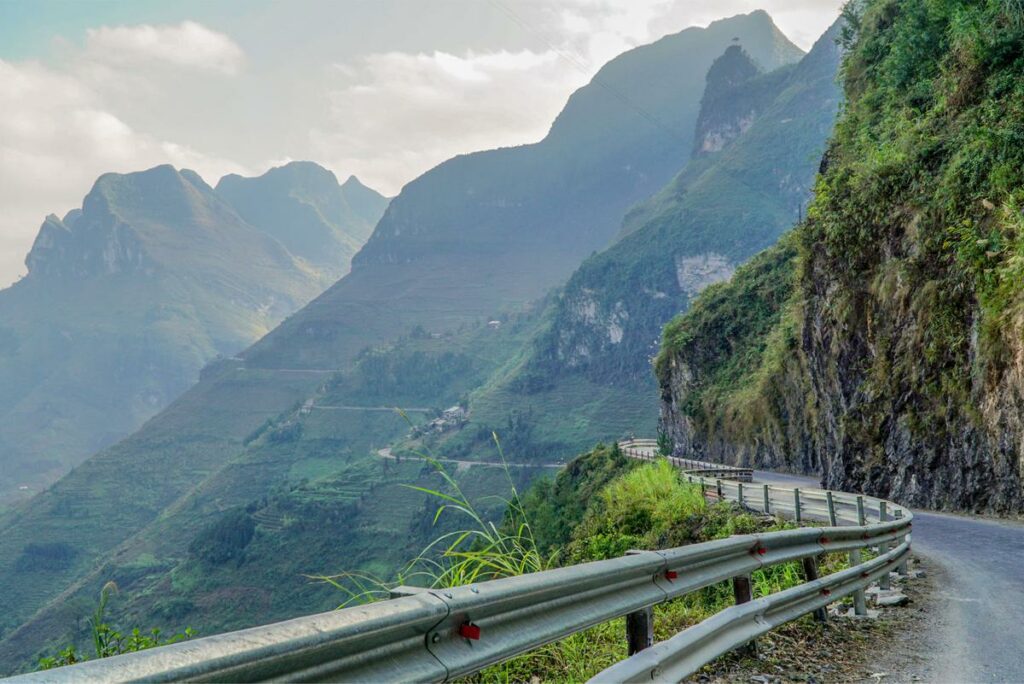 |
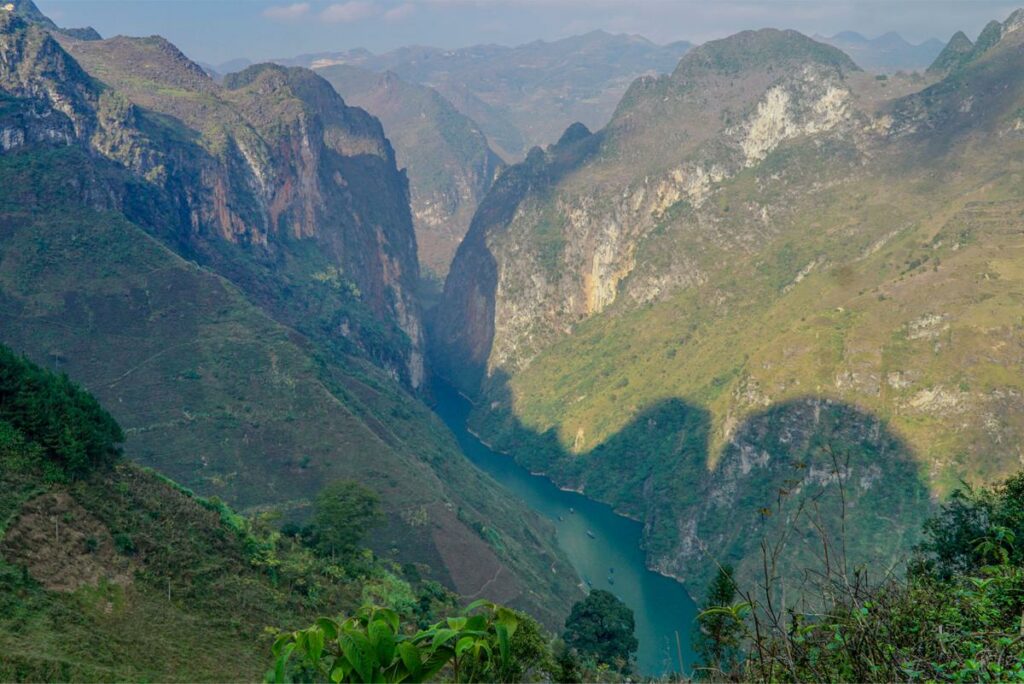 |
As previously mentioned, one of the best things to experience in Ha Giang is exploring its stunning mountains. There are numerous mountain roads and passes that are worth mentioning, but we’ll focus on highlighting some of the best ones.
The Quan Ba Heaven Gate is the first breathtaking mountain pass you will encounter when starting from Ha Giang, offering stunning views of the Twin Mountains. Next is the Tham Ma Pass, featuring an iconic S-shaped road. From here, you can drive through Sung La Valley and choose to head straight to Dong Van or take a detour via Lung Cu, offering some of the most enchanting mountain views.
The Ma Pi Leng Pass is considered the “king” of the mountain passes in Vietnam. This road between Dong Van and Meo Vac boasts cliffs and remarkable views. After Meo Vac, heading to Du Gia via Mau Due will treat you to even more scenic mountain views.
3. Hoang Su Phi
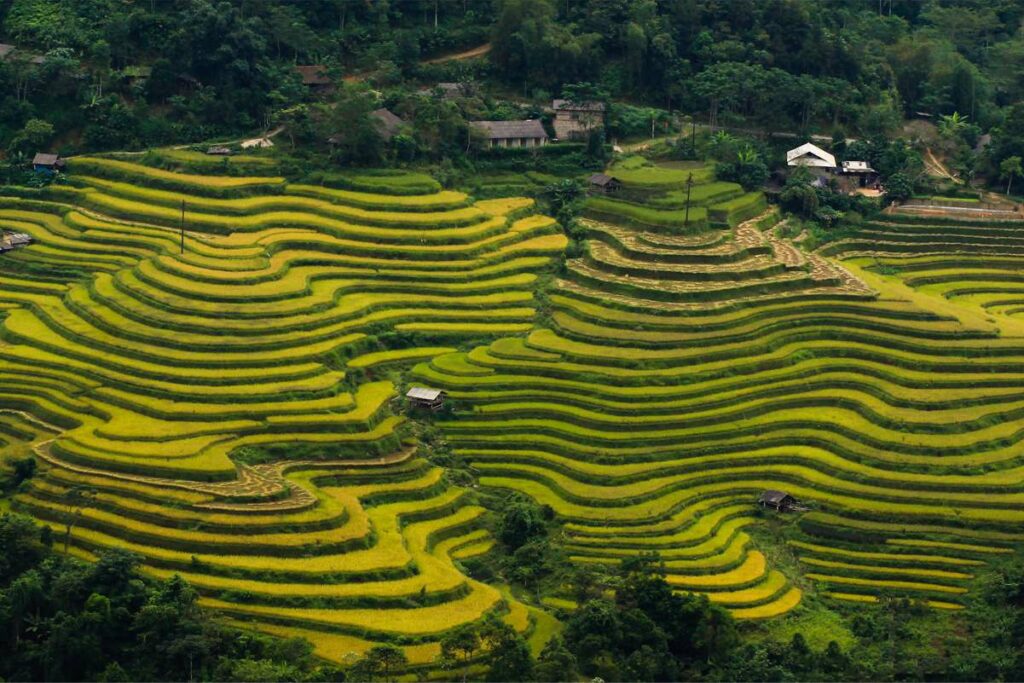 |
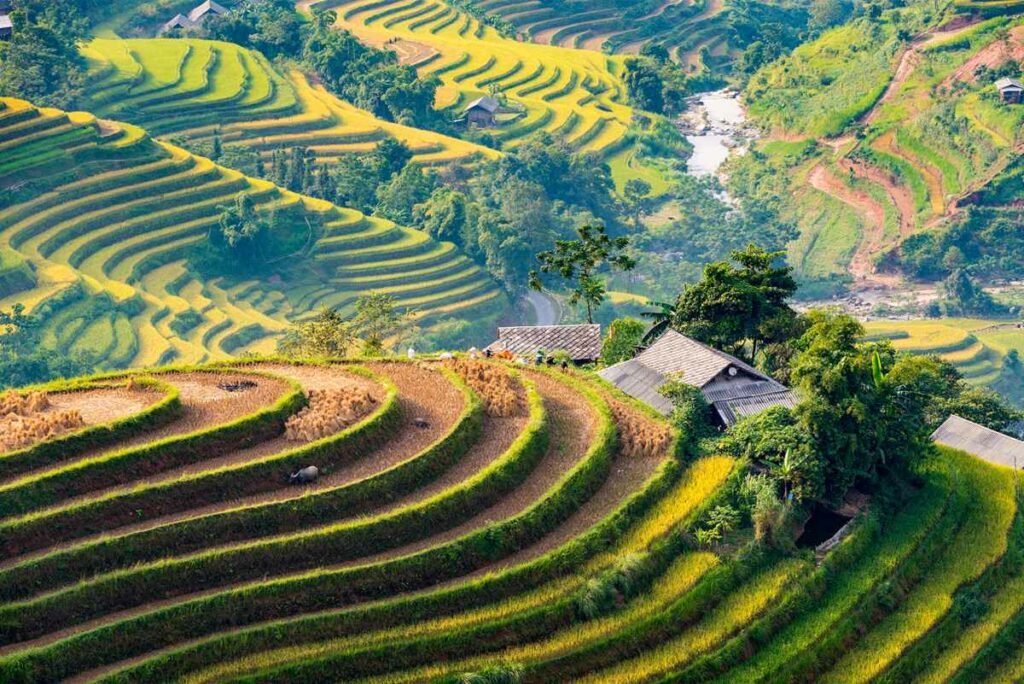 |
Hoang Su Phi is one of the most off-the-beaten-track destinations of Vietnam. It is not along the famous loop and there is hardly any transportation to this area. For this reason, most travelers have never heard of this place. And this is weird because, around harvest season, you can find here some of the most stunning rice fields of Vietnam. Very high terraced rice fields were built in the mountains of Ha Giang. It is a great place for trekking and discovering the local minority villages that have cultivated the lands here for many generations.
- Tip: Do you want to visit this stunning rice fields landscape? Visit it with our Ha Giang tours. You can also combine the Hoang Su Phi rice fields with the Ha Giang loop!
4. Markets of Ha Giang
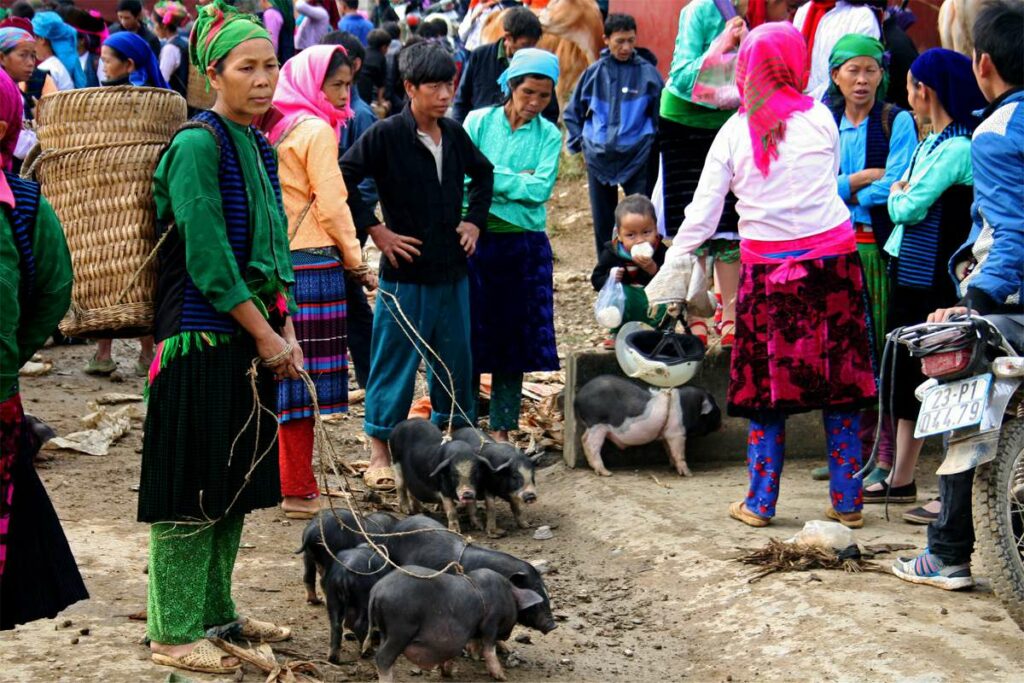 |
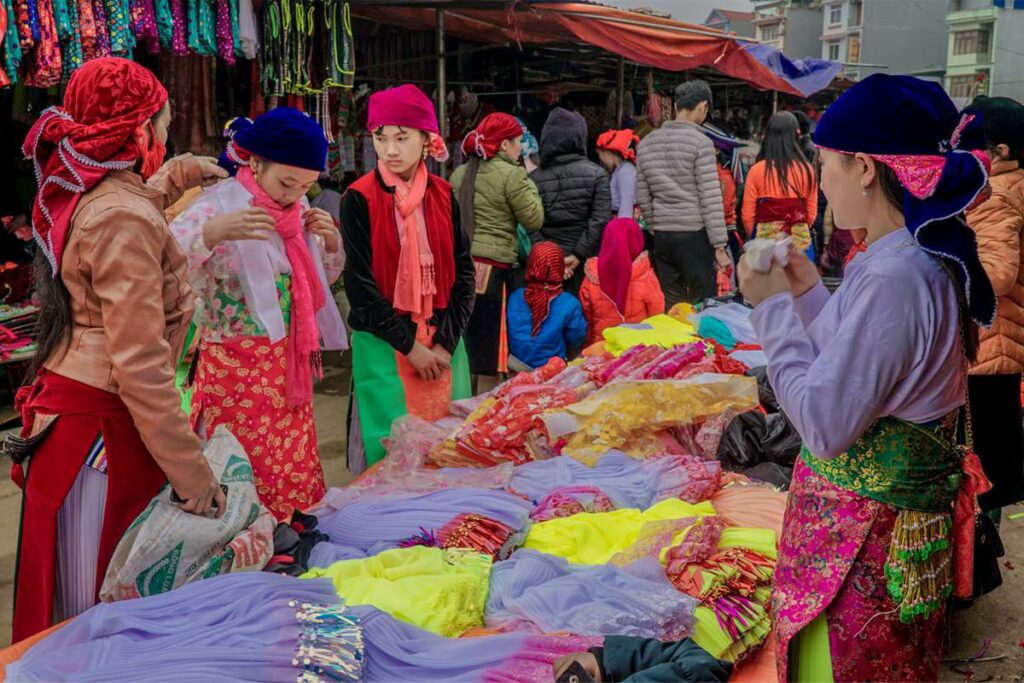 |
One of the other best things to do in Ha Giang is learn about the culture of the local minorities. In this province you will even find the highest number of ethnic minorities in Vietnam! While driving through this landscape they will not be difficult to see, as they often wear the most colorful and unique clothing. It is impressive to see them.
The easiest way to see these colorful ethnic minorities is to visit a market in Ha Giang. These mountain markets are often held once a week and hill tribes from all over the area come here to trade and socialize. It is a unique and colorful gathering, where people trade local goods, food, clothing and even farm animals. The largest market is the Meo Vac Market, which is held every Sunday.
5. Local minority villages
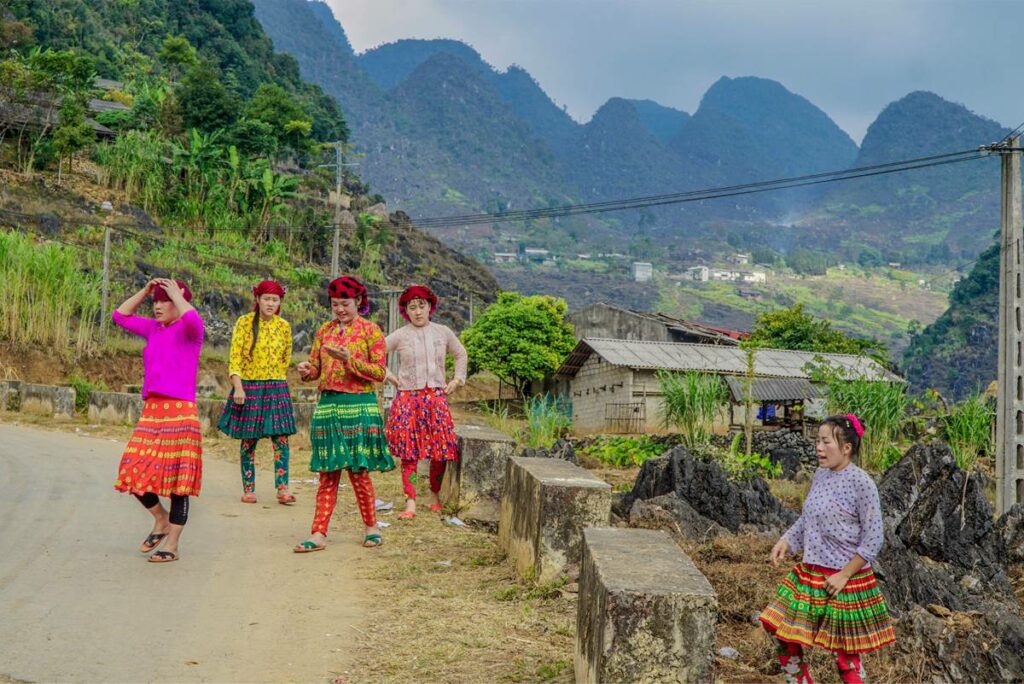 |
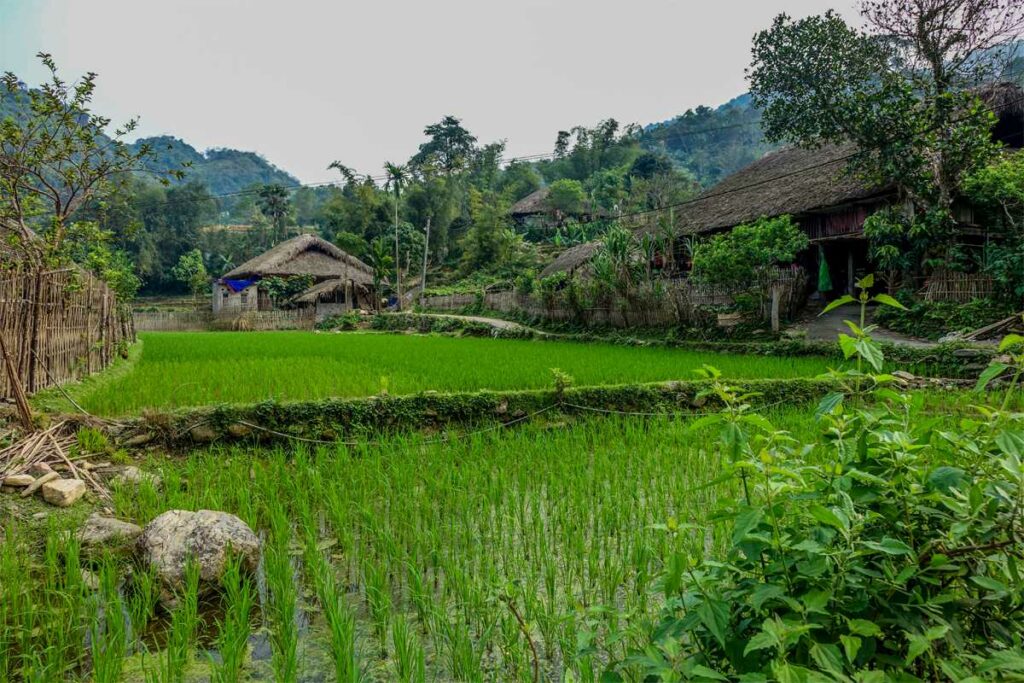 |
Discovering the unique culture of this region is best done by visiting the small ethnic villages. Here, you can witness their daily activities such as working on the land and engaging in different crafts. If you are accompanied by a guide, they can assist you in communicating with the locals.
These villages are spread throughout the province and are home to several different minority groups including the Hmong, Dao, Lo Lo, Giay, and Tay. Each group has its distinct clothing, culture, and language. You will also encounter various types of housing in these villages. Some minorities live in houses on stilts, while others reside in stone or clay houses.
6. Trekking
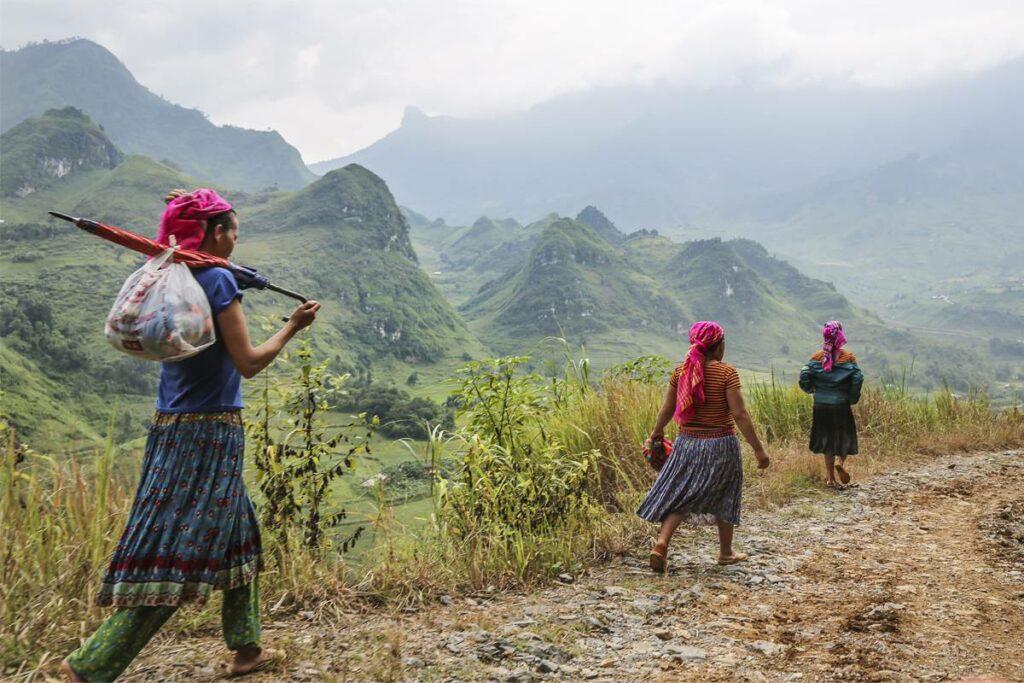 |
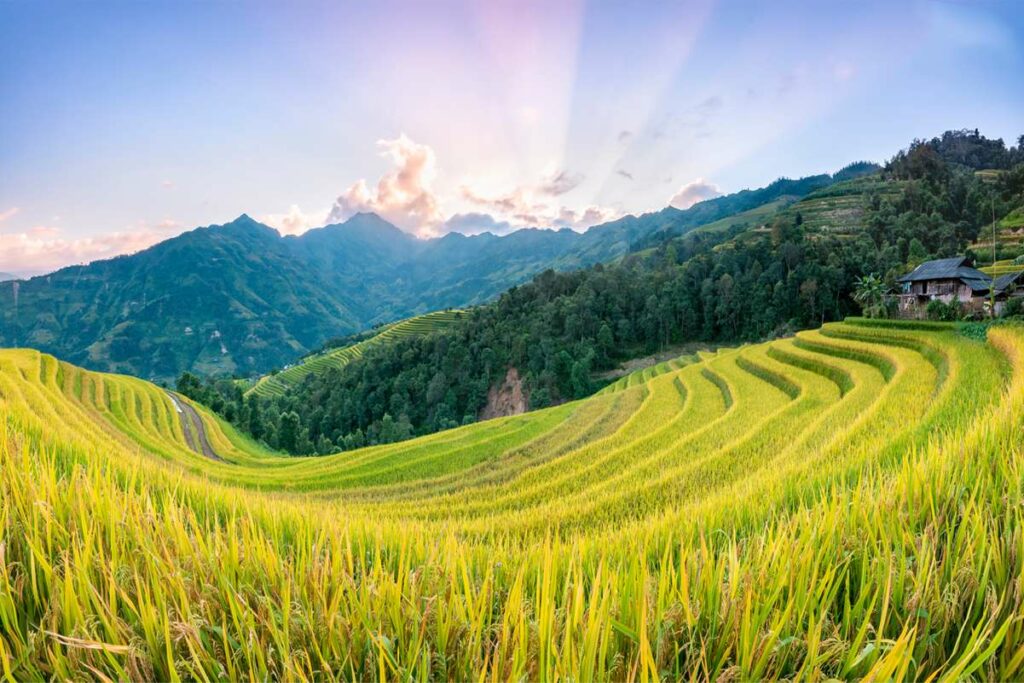 |
Sapa is the most famous trekking destination in Vietnam. Few people are aware that Ha Giang also offers excellent trekking opportunities. Around Hoang Su Phi, you can stroll through terraced rice fields and spend the night in a traditional homestay. Dong Van is the greatest area to trekking while doing the Ha Giang Loop. While there aren’t many terraced rice fields, hiking routes can take you through Vietnam’s stunning mountains.
A walk is a welcome change after sitting all day on the back of a motorcycle or in a car.
7. Historical buildings
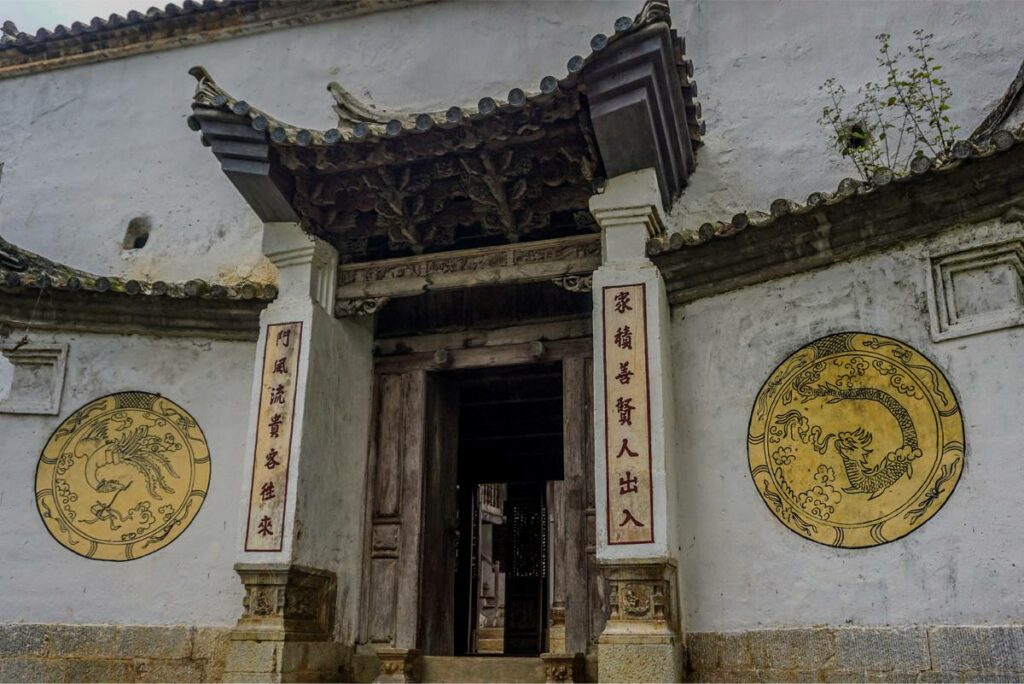 |
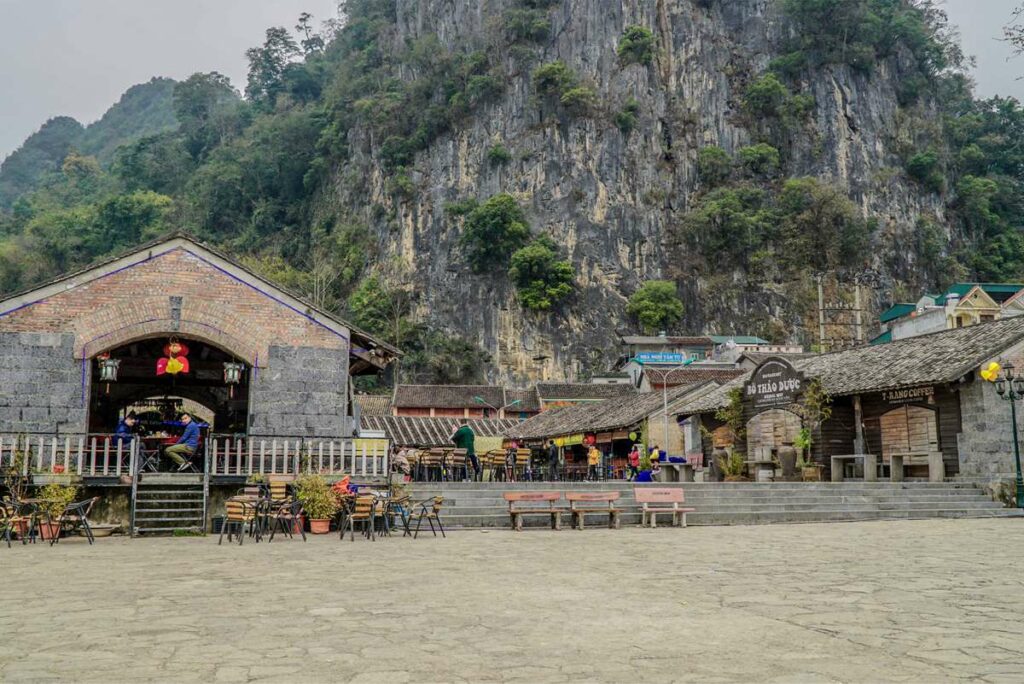 |
Ha Giang may not have large ancient cities like Hoi An, Hue or Hanoi, but it does offer some interesting historical sites to explore. The Hmong King Palace, for example, is where the former Hmong kings resided during their rule over much of northern Vietnam. Sung La is home to the House of Pao, which was featured in a famous Vietnamese movie. This house and the surrounding ones belong to the Hmong minority and are approximately 100 years old.
In addition to these historical sites, there are also buildings in the province that date back to the French colonial era. The old quarter in Dong Van is a prime example of this, and you can even visit an old French fort situated on a mountain behind the Old Quarter, providing a stunning view of the town. Furthermore, between Meo Vac and Mau Due, you can explore the ruins of a French guard post set amidst beautiful landscapes.
8. Lung Cu flag tower
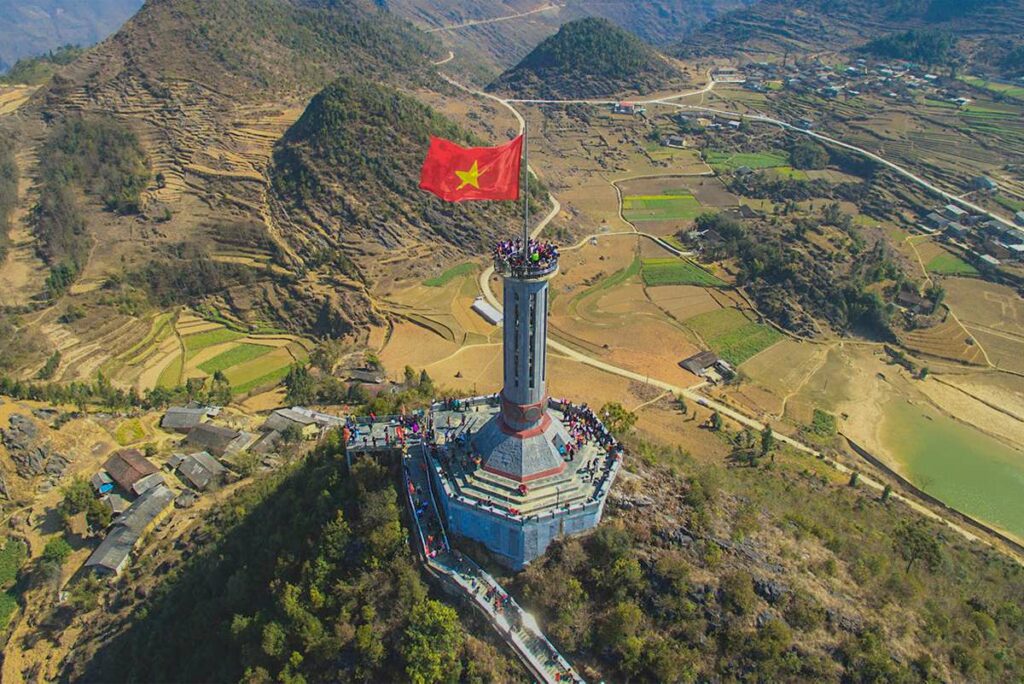 |
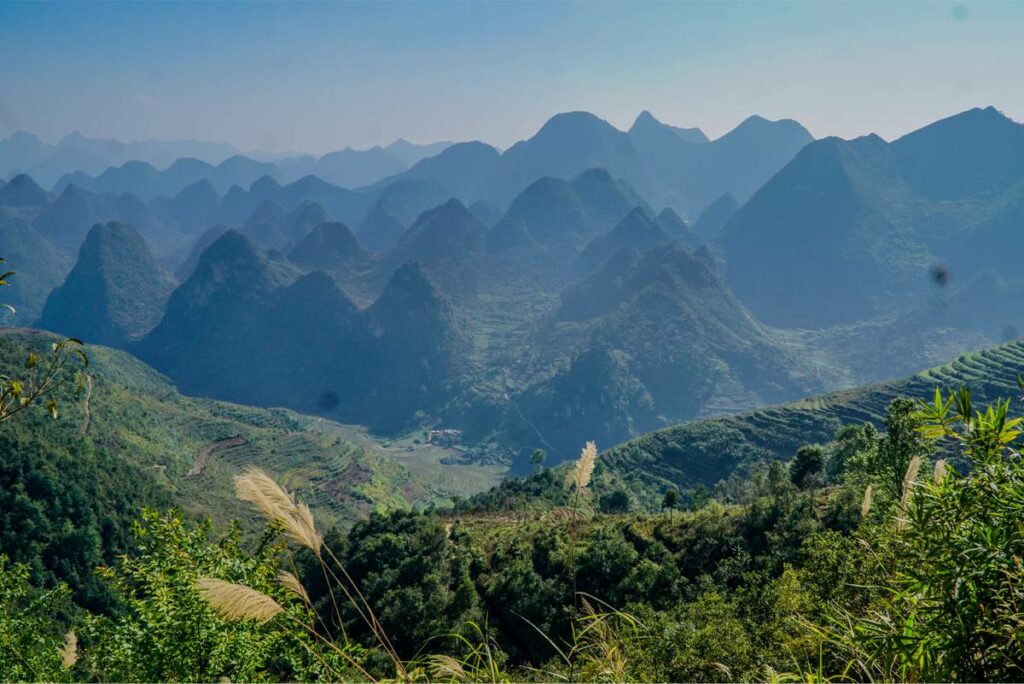 |
The Lung Cu Flag Tower is the tallest in Vietnam, marking the northernmost point in the country. Visiting the tower is a great experience, and the journey to Lung Cu is one of the top things to do in Ha Giang. Along the way, you’ll encounter breathtaking mountain views, some of the most stunning in Ha Giang as well as the entire country. Don’t miss the chance to stop at local villages to experience rural life.
9. Homestay experience
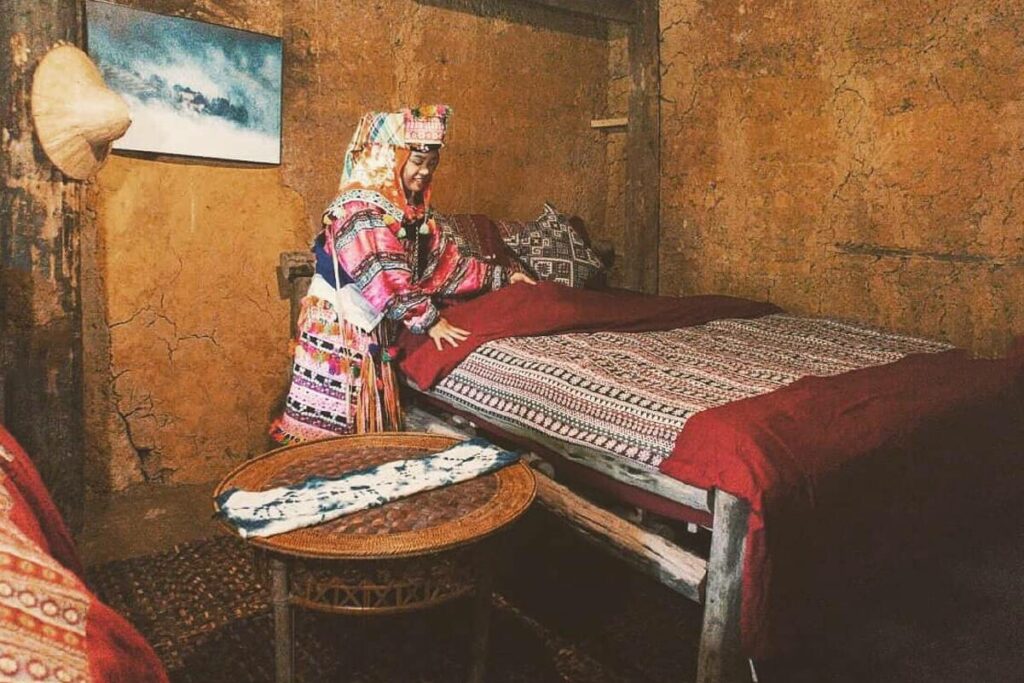 |
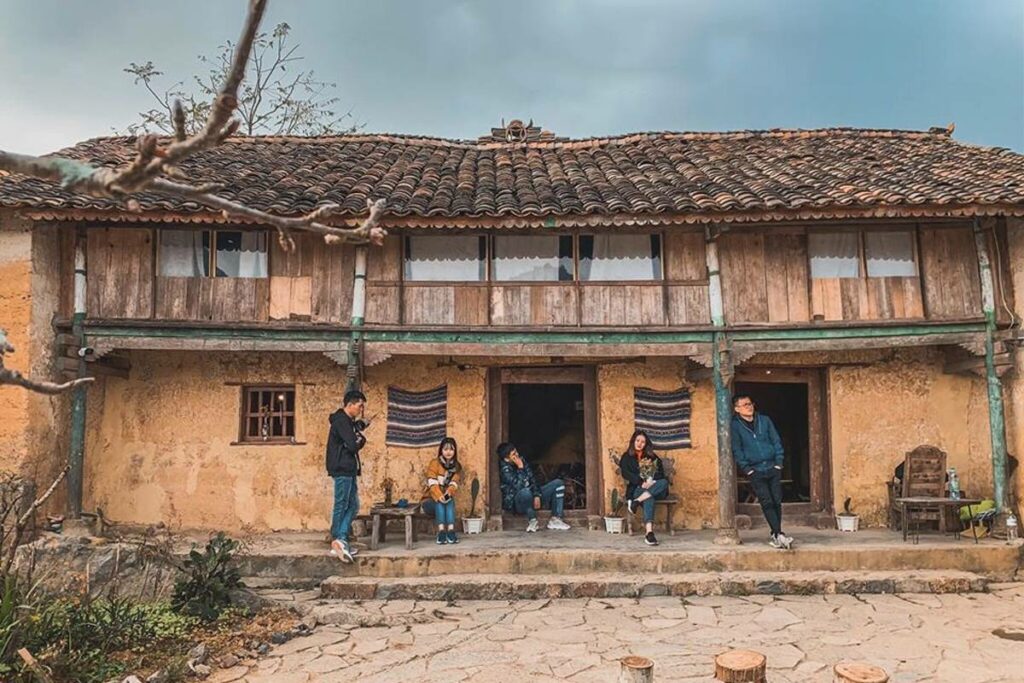 |
10. Relax in Du Gia
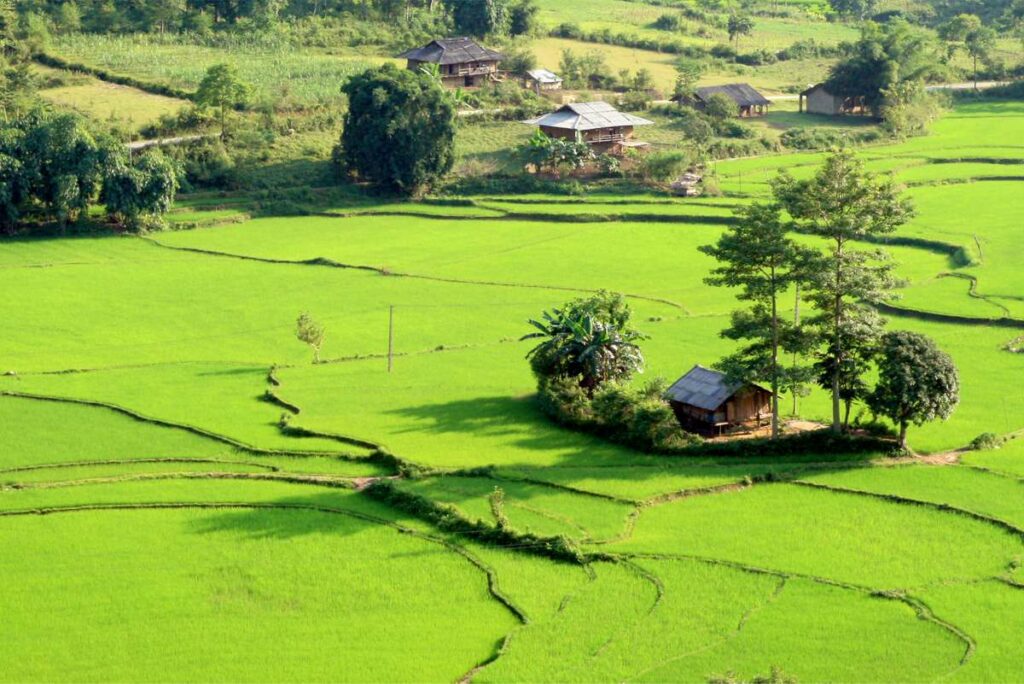 |
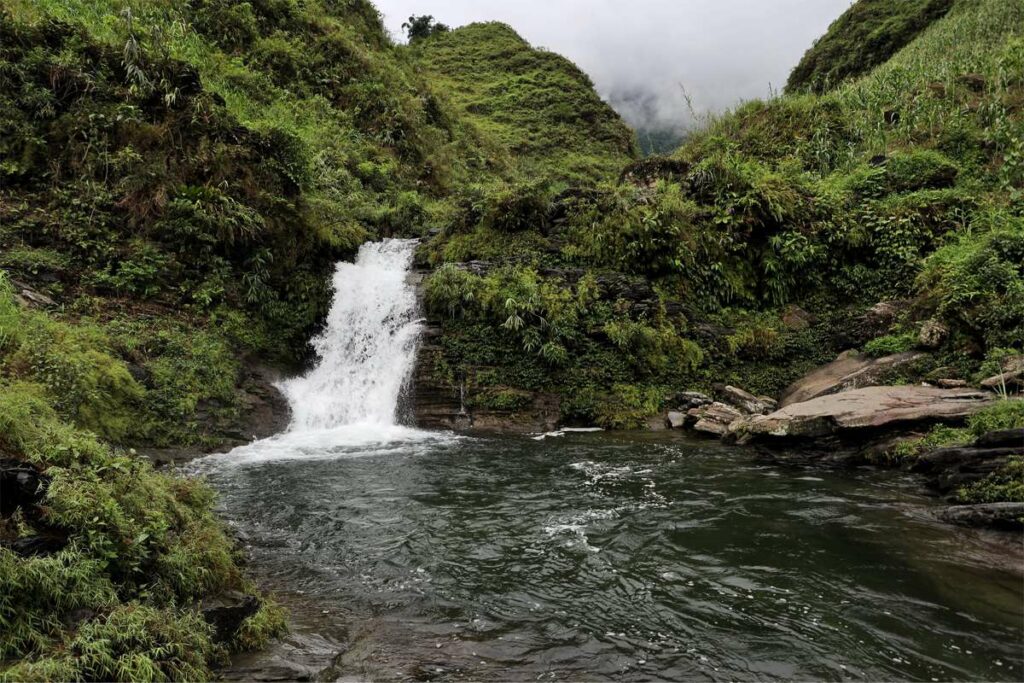 |
Best hotels & hostels in Ha Giang
Hotels in Ha Giang CIty
- QT Guest House
- Kiki’s house
- Ha Giang Amazing hostel
Hotels in Dong Van
- Green Karst Hostel & Bar
- Binh Minh Hostel
- Lam Tung Hotel
Hotels in Meo Vac
- Ong Vang Meo Vac Hotel
- Little Yen’s Homestay
- Lam Tung Hotel
Hotels in Yen Minh
- Homestay bongbang
Although Ha Giang is slowly becoming more developed, the available accommodation is generally fairly simple. Larger cities such as Dong Van and Ha Giang do have hotels, but guesthouses and homestays are more common. They may offer fewer basic services, but they allow you to communicate with your local hosts and give them a glimpse into their daily lives.
Food & drinking
The far north of Vietnam is a surprisingly tasty place to find good Vietnamese food. The restaurant scene consists of small “quan” restaurants where you have to sit on a small stool while the food is being cooked before your eyes. The locals will probably beg you to taste some rice wine, something you should be careful with.
Breakfast and dinner you will often eat at your homestay. It is recommended to book a family dinner and eat with the family of the host and other guests.
How to get there
Ha Giang does not have an airport (yet) or train station. The only way to get here is by road
Busses to Ha Giang
Buses and limousine vans are driving between Hanoi and Ha Giang. You have the options for different night buses, varying in comfort, with the limousine VIP buses being the most comfortable option. The limousine vans drive during the daytime and are a very comfortable option. The drive takes about 6 hours.
In addition, there is also a bus between Sapa and Ha Giang. For other destinations, you first have to travel to Hanoi.
Private cars to Hanoi
You can also take a private car from Hanoi to Ha Giang or extend your Ha Giang loop by starting already from Hanoi.
- Tip: In our Ha Giang loop tour you have the option to start your tour in Ha Giang or Hanoi; travel either by car, bus or VIP bus from Hanoi to Ha Giang (and the way back). This is easy if you don’t want to arrange your transportation at a bus station.
How to get around
1. Motorbike – Traveling from one city to another in Ha Giang is best done by motorbike. The roads are winding and steep but generally well-paved, making for a comfortable drive. You must not underestimate these roads if you’re not an experienced driver. For safety, you may want to consider hiring a driver. Alternatively, riding on the back of an easy rider is a great way to explore Ha Giang.
2. Car – Another good option is to travel by car with a driver. Book in advance to ensure that you’ll have someone waiting for you when you arrive in Ha Giang.
Tip: Check out our Ha Giang loop tour. You can choose to go by motorbike or car and have the flexibility to complete the route in 3 to 5 days.
Itinerary 3 days in Ha Giang
This is a very brief itinerary of the route. Read a full detailed guide and route of the Ha Giang loop here.
|
DAY 1 |
DAY 2 | DAY 3 |
|
|
|
More tips for traveling in Ha Giang
Where to go next?
Ha Giang can be perfectly combined with the neighboring province Cao Bang, where you can find the Ban Gioc waterfall, the biggest waterfall in Vietnam. It is also possible to combine Ha Giang with Sapa, though the distance is quite a bit further. Check our Ha Giang tours for their two combination trips.
If you want to go to Halong Bay, Mai Chau, Ninh Binh, or any other destination south, you would always need to travel first to Hanoi.
Ha Giang with kids
It is possible to bring your children to Ha Giang. Being in the car for 3 to 4 or even 5 days can be a bit much for them though. What children do love a lot is being on the back of a motorbike of an experienced guide. Driving with a guide is very safe, though children must be tall enough and comfortable with this idea.
Language
This province is not far developed for tourism (fortunately). This gives a very authentic view on life here, but keep in mind that communication would be difficult.
What to bring
When you go on a motorcycle, it is useful not to take too much with you. Choose a backpack instead of a trolley case. In the summer it can be very hot, but bring clothes to protect you against the rain. In winter it is mainly dry, but it is advisable to bring a windbreaker against the cold wind and some warm clothing. Do not bring too much, but wear thinner clothes in layers.
